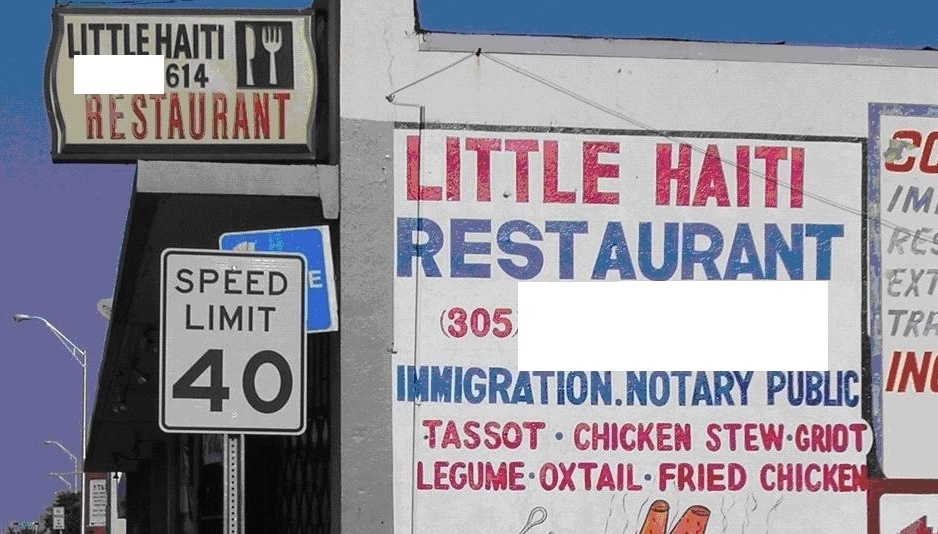How ‘Notario’ Fraud Preys On Language Differences & Can Result In Unfair Deportation Image courtesy of A notario público courts customers on the side of a building. This example of notario advertising was provided by the American Bar Association's Commission on Immigration.

A notario publico courts customers on the side of a building. This example of notario advertising was provided by the American Bar Association’s Commission on Immigration.
While the news is filled with reports of various frauds perpetrated on American consumers, one particularly nasty scam doesn’t make as many headlines because it preys almost exclusively on recent Spanish-speaking immigrants who think they are paying for quality legal advice but instead get someone with nothing more than a notary stamp.
Thankfully, the often-underreported type of deception is now being pushed into the spotlight by lawmakers and federal regulators.
The scheme, which has bilked million of dollars from immigrants, takes advantage of the linguistic similarities between the Spanish phrase “notario público” – meaning a highly trained legal professional – and the English “notary public” – meaning a licensed official with witnessing duties.
The deception arises when an individual obtains a notary public license in the U.S. and uses it to misrepresent that they are a notario público to Spanish-speaking immigrants looking for legal assistance.
To further their scheme, notarios have been known to use false advertising and fraudulent contracts to attract business, the American Bar Association Commission on Immigration reports.
When meeting with a client it isn’t unheard of for these fraudsters to further take advantage of the close relation between a notary public and notario público, by representing themselves as a lawyer or by saying they work with a lawyer who happens to be out of the office.
In general, the scheme works when a Spanish-speaking individual in need of immigration help hires the advertised notario under the assumption they are a qualified lawyer who can assist in obtaining lawful status, or in some cases to perform legal functions such as drafting wills or other legal documents.
More often than not, the notario then charges an exorbitant fee for their services. However, they rarely follow through with the work.
According to the ABA, victims often stand to lose more than just money. In fact, some notario scam cases result in victims permanently loosing opportunities to pursue immigration relief because the fraudster has damaged their case.
Unfortunately, most notario scam cases aren’t identified until after the damage has been done.
To make matters worse, the Federal Trade Commission announced a new low to the scheme: notarios seeking out their victims by visiting federal detention centers and making promises to people who have already been detained on immigration-related charges.
“People in detention, who often are in great need of help, trust notarios and pay them exorbitant amounts of money,” the FTC said in its notice. “If they’re lucky, it could help – but, usually, they get nothing in return. Or worse, they get bad advice that leaves them worse off than when they started.”
Federal regulators, consumer advocates and other immigrant-focused groups have been working to both raise awareness of notario scams and hold those carrying out the scheme responsible.
In April 2014, the FTC won a court judgement shutting down a Baltimore-based couple whose notario scheme took in an estimated $479,000 to $753,000 from unsuspecting immigrants.
A court found that some of the customers who sought help from Loma International Business Group “suffered severely,” with many being deported and one arrested and jailed for 11 months. Under the order, the couple was required to repay their victims and prohibited from ever misrepresenting their services in the future.
In addition to federal regulators actions against notario fraud cases, two U.S. congressmen announced last month that they would introduce legislation to hold notarios accountable for their deceptive actions.
The Protecting Immigrants from Legal Exploitation Act [PDF], sponsored by Florida Rep. Ted Deutch and Illinois Rep. Bill Foster, aims to shield immigrants from the threat of notario fraud by penalizing fake attorneys who peddle fraudulent and unethical legal services.
Under the legislation, those who create schemes to provide fraudulent immigration services, this legislation imposes a fine, a possible jail sentence of up to 10 years, or both. In addition, those who misrepresent themselves as an attorney in any matter related to federal immigration law will receive a fine, a prison sentence of up to 15 years, or both.
Additionally, the legislation would provide grant funding to circulate information on avoiding the fraudulent services and to support non-profits that provide legitimate legal services to immigrants.
In the meantime, both the FTC and the ABA offer resources for victims and consumer education material to spread the word about the deceptive scheme.
“People in the immigration process need good, clear information about what to do and who can help,” the FTC states on its immigration-focused webpage offering multi-language materials and information on reporting instances of fraud.
Want more consumer news? Visit our parent organization, Consumer Reports, for the latest on scams, recalls, and other consumer issues.

